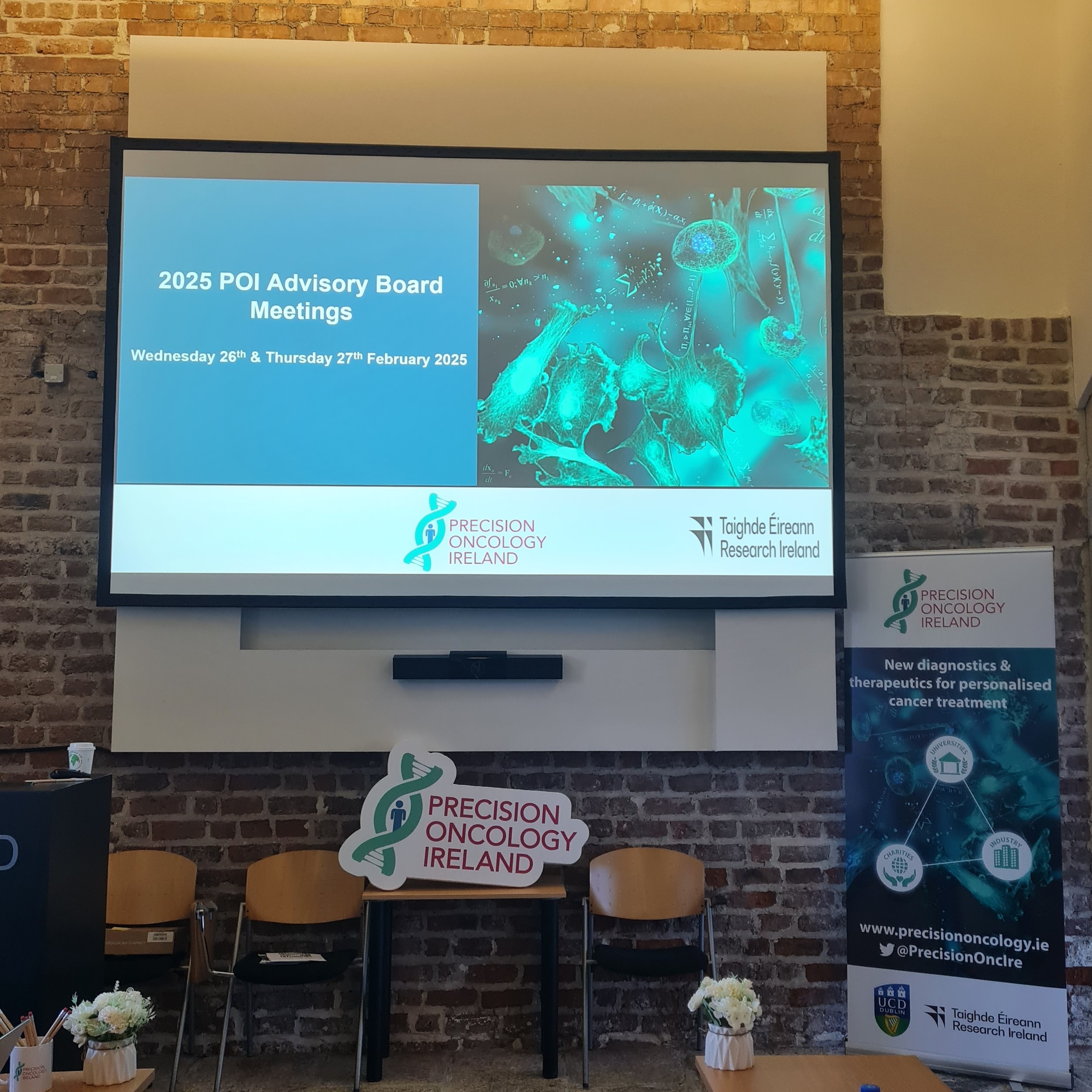Irish breast cancer study highlights potential new treatment approach
Published 1 October 2020
A new study by Irish researchers may pave the way to developing a more effective means of treating patients with the most common form of breast cancer
The promising findings are described in a paper published in the leading journal “Cancer Research”, a journal of the American Association for Cancer Research, in a study headed by researchers from RCSI University of Medicine and Health Sciences, and UCD, who led an international team of colleagues from the Netherlands Cancer Institute and Oxford University, among others.
Up to three-quarters of breast cancer patients are diagnosed with what is known as the ‘hormone receptor-positive’ form of the disease, which affects more than 2,000 women each year in Ireland. While existing hormone receptor-targeting therapies such as tamoxifen are effective for many patients, some do not respond to the treatment or prove resistant to it if their cancer returns. Ultimately, almost half of patients receiving hormone treatments experience a relapse of their disease, and researchers are urgently looking for new treatment options for these patients.
The research team, co-led by Prof Darran O’Connor from RCSI and Prof William Gallagher from UCD, discovered a potential new treatment approach for patients who are resistant to hormone therapy. The study found that a protein called ‘USP11’ plays a central role in the growth of hormone receptor-positive breast cancer cells, and that targeting this protein may provide a new form of treatment to help stop this growth in a way never attempted previously.
Although studies remain at an early stage, it is hoped this finding could eventually help prompt a significant step forward in treatment options for patients for whom existing hormone therapy has proven unsuccessful.
The study is a result of the Irish Cancer Society-funded BREAST-PREDICT programme which brought experts from around the country together to work on breast cancer research projects. Some of the programme’s activities are continuing as part of the ground-breaking Precision Oncology Ireland consortium of 5 universities, 8 companies, and 6 charities, including the Irish Cancer Society, which aims to develop new diagnostics and therapeutics for personalised cancer treatment.
Prof Darran O’Connor said: “The study represents an early indication of a possible new treatment strategy for a group of breast cancer patients whose cancer comes back but has acquired changes that mean traditional anti-hormone therapy will no longer work.”
Lead author Dr Lisa Dwane from RCSI said: “Understanding how breast cancer is controlled at the cellular level is key for disease management and finding new therapies for patients. In this study, we found that the protein USP11 can regulate hormone-driven breast cancer and with further research, may represent a point of therapeutic intervention.”
Study joint senior author Prof William Gallagher and Director of the BREAST-PREDICT programme commented: "This ground-breaking study by Dr Dwane and colleagues is a perfect example of the benefit of working in a team-based manner to advance cancer research.”
Dr Robert O’Connor, Director of Research at the Irish Cancer Society, said: “This work is yet another example of the high quality, impactful cancer research that public support allows happen in Ireland.”
October marks the beginning of Breast Cancer Awareness Month, and members of the public can show their support for cutting-edge breast cancer research such as this by logging on and donating at www.Cancer.ie/CupsAgainstBreastCancer.
ENDS
This press release was covered in the 'Irish Independent' on Friday 2nd October 2020. See full article here.
About Irish Cancer Society Research
The Irish Cancer Society is the largest voluntary funder of cancer research in Ireland, and we are committed to improving the lives of cancer patients in Ireland through research. The Irish Cancer Society funds the work of over 100 cancer researchers in leading institutions and hospitals all across Ireland, and funds projects across the range of research areas in line with our mission to ensure fewer people get cancer, and those that do have better outcomes.
Our vision is that cancer research will be at the heart of cancer care. This will ensure that patients diagnosed with cancer in Ireland will have access to the most cutting-edge treatments and the best possible care.
About BREAST-PREDICT
The BREAST-PREDICT Collaborative Cancer Research Centre was a country-wide collaboration between experts in the area of breast cancer research, funded by the Irish Cancer Society, which ran between 2013-2019. The first ‘virtual centre’ of its kind in the country, BREAST-PREDICT brought together researchers from six academic institutions across Ireland: UCD, TCD, RCSI, DCU, NUIG and UCC, and a nationwide clinical trials group, Cancer Trials Ireland (formerly ICORG). As a multi-disciplinary centre, it united diverse breast cancer experts with different skills to work towards a common goal.
About Precision Oncology Ireland
Precision Oncology Ireland is a consortium of 5 Irish universities, 8 companies, and 6 Irish cancer research charities, including the Irish Cancer Society, aiming to develop new diagnostics and therapeutics for the personalised treatment of cancer. The Consortium is part-funded by Science Foundation Ireland under their Strategic Partnership Programme, is co-ordinated by Systems Biology Ireland, and launched in November 2019.
The outcomes of this research programme will range from diagnostic tests for cancer based on personal molecular markers, novel drugs which specifically target cancer cells, and improved synergistic drug combinations. The programme will also provide key infrastructural supports to researchers, co-ordinating access to tumour biobanks, and allowing access to state-of-the-art technologies. More information can be found at www.precisiononcology.ie.

